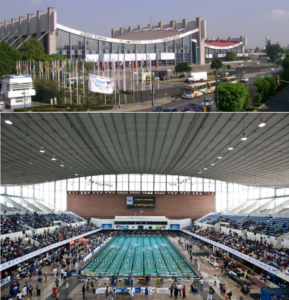The 2016 Rio Olympics ended a year ago today. Unfortunately, its legacy is proving more of a poisoned chalice than a source of national pride.
In fact, when all is said and done, I fear the most significant medal from Rio will be the silver it seems doomed to win for the biggest boondoggle in the history of sports.
In “Putin Turns $51 billion Sochi Olympic Park into a Racetrack?!” October 15, 2014, I posited that the 2014 Sochi Olympics has a lock on gold for shameful Olympic legacies. The 2004 Athens Olympics is on track to win bronze. Except that it could be overtaken if the International Olympic Committee (IOC) ever awards the Summer Games to another city in a developing country. (More on that later!)
After the athletes left Rio, so too did the optimism as political scandals, including millions of pounds of public money allegedly stolen in bribes for Olympic constructions projects, plunged the country into economic chaos.
Rio de Janeiro itself declared itself bankrupt just days after the Olympics closing ceremony, with no more money to pay suppliers to the Games, while hospitals, schools and the police have borne the brunt of drastic cuts to public services. …
Perhaps unsurprisingly, the short-changed people of Rio are today left wondering exactly how the Games improved their lives.
(Daily Mail, August 19, 2017)
 Of course, the saddest part is that Brazilian leaders knew Rio’s legacy would be thus. Even ordinary Brazilians knew, not least because they were already suffering broken legacy promises, which hosting the 2014 World Cup left in its wake.
Of course, the saddest part is that Brazilian leaders knew Rio’s legacy would be thus. Even ordinary Brazilians knew, not least because they were already suffering broken legacy promises, which hosting the 2014 World Cup left in its wake.
No doubt this is why, instead of celebrating with anticipation, hundreds of thousands of Brazilians were protesting in frustration in the run up to these Games. Yet Rio organizers continued hyping legacy benefits. This showed not only what they thought of ordinary Brazilians, but also their willful intent to host these games as little more than a vainglorious boondoggle – the “general welfare” be damned.
As it happened, I commented on those protesters wailing to no avail in “Rio Olympics: The Opening Ceremony,” August 6, 2016.
___________________
[R]oving protests betray the abiding fact that, far from feeling national pride, the vast majority of Brazilians actually resent hosting these Olympics.
One can hardly blame them. After all, these folks have been perennially marginalized. And now they’ve been gentrified and quarantined in squalid favelas to make room for new Olympic venues and related facilities. …

Not to mention that most Brazilians are likely to enjoy none of the purported legacy benefits. Indeed, like those of so many host cities (notably Munich, Athens, and Sochi), Rio’s Olympic venues seem destined to live on as white elephants or eyesores. …
Brazilians need only look at the poisoned chalice Athens 2004 turned out to be for the Greeks. After all, the debt hangover from those Games not only triggered the EU financial crisis of 2010, but austerity measures to service that debt have many once-proud, middle-class Greeks now living like favela-dwelling Brazilians.
___________________
Swimming is my favorite Olympic sport. Therefore, nothing is more heartbreaking in this respect than seeing images of the venue where Michael Phelps ended his storied career already looking like the abandoned venue where Mark Spitz ended his nearly 50 years ago.
But all venues have suffered such neglect and decay that Rio’s Olympic Park now looks like a zombie paradise.

Seven months after Rio de Janeiro hosted the first Olympic Games in South America, many of the expensive venue sites remain abandoned.
Getty image photojournalist Mario Tama recently captured images of the decaying structures that were promised by organizers to be a legacy benefit to the citizens of Brazil. From the degraded golf courses and swimming pools to an abandoned gondola line, the photos look less like the past home of a worldwide event and more like scenes from The Walking Dead.
(Huffington Post, March 21, 2017)
As indicated above, the IOC bears some blame for using its imprimatur to help Rio peddle its Olympian pipe dreams. For IOC members knew as surely as Rio organizers did that those dreams would end in the ruins now littering that city.

But the IOC can thank its lucky stars that Tokyo, Paris, and Los Angeles will be hosting the next three Summer Games, respectively. Because those cities are hardly likely to end up with Rio’s bankrupt legacy.
Unfortunately, this militates against the IOC ever awarding the Olympics to a city in another developing country again. Given the hangover Athens suffered, you’d think this would have been a lesson learned
 Mind you, Rio is not the first city in a developing country to host the Summer Games. That distinction belongs to the 1968 Mexico Olympics.
Mind you, Rio is not the first city in a developing country to host the Summer Games. That distinction belongs to the 1968 Mexico Olympics.
The political strife that attended those Games – notably the black power salute and the lesser known Tlatelolco massacre – marred Mexico’s legacy. But it has fared as well as host cities like Los Angeles and London when it comes to legacy benefits. This is self-evident given that Olympic venues like the Estadio Azteca and other stadiums, which hosted soccer events, and the Alberca Olímpica Francisco Márquez, which hosted swimming and diving, have been in constant use ever since.
In fact, the Pan American Sports Organization (PASO) resorted to Mexico City to host the 1975 Pan American Games after everything from financial woes to political strife forced two other Latin American cities, Santiago and São Paulo, to withdraw. The IOC probably should have seen this as a red flag. But this is not the forum to explain why Mexico succeeded as a host city where others in developing countries failed.
To be fair, though, even host cities in developed countries should beware that Olympian promises of legacy benefits often provide comfort to fools. Exhibit A in this respect is the 1972 Munich Olympics I alluded to above. For its venues suffered such neglect and decay that this city was competing with Athens for that bronze medal.
In any event, the IOC should henceforth require bidding cities to meet legacy sustainability criteria. Foremost, they should have to demonstrate that they can repurpose and maintain all Olympic venues and related infrastructure for at least 10 years after the Closing Ceremony. Failure to show this kind of fiduciary care would risk the IOC becoming as bankrupt morally as Rio has become financially.
Finally, I’d be remiss not to note the irony in Rio’s zombified Olympic legacy. After all, this is the city where millions go annually to revel in Carnival. What’s more, the only hangover symptom it ever suffers is the headache of having to clean up the mess revelers leave behind.
Related commentaries:
Rio opening ceremony…
Putin’s Sochi…